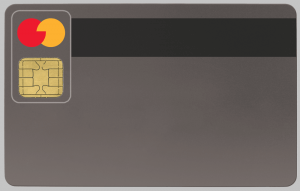The world of credit and credit scoring abounds with myths. Understanding what’s fact and what’s fiction can help you navigate your personal finances with confidence.
Myth #1 – CREDIT IS IMPOSSIBLE TO GET IF YOU DON’T ALREADY HAVE IT
If you don’t have a credit history, never fear! Building credit is easy. You can get a line of credit – a loan from a bank or lender – or a car loan by having a parent, family member or trusted friend added to the loan as a co-signer or authorized user. Once you start making payments, make sure you pay on time to keep your credit in good standing.
Myth #2 – BAD CREDIT SCORES WILL FOLLOW YOU FOREVER
Credit reports can be improved over time. Negative information on your credit report, like late or missed payments, drop off after seven years. As long as you do not continue to make late payments, you can raise your score by paying loans on time, lowering your debt-to-income ratio (the amount of debt you owe in comparison to the amount of money you make), and keeping low-to-medium balances on credit cards. Keeping credit card balances near the limit will cause your credit score to drop. Conversely, having more than one credit card that is routinely paid on time, and has low-to-medium balances can boost your score.
Myth #3 – CHECKING YOUR CREDIT HURTS YOUR CREDIT SCORE
The truth is, accessing your credit report once a year has no bearing on your credit score. In fact, it’s actually encouraged as part of good credit management. You want to do this annually to look for fraudulent activity and dispute errors. When you check your credit report, it’s considered a soft inquiry, like a background check. It won’t ding your credit score like applying for a credit card or a loan does.
Myth #4 – CARRYING A BALANCE ON YOUR CREDIT CARD HELPS YOUR CREDIT SCORE
As touched on above, while showing regular and responsible use of credit cards is helpful to your credit score, high outstanding balances may be harmful to it. This is true even if you make payments on time each month. A maxed-out credit card tells lenders that a person is either irresponsible with money or living above their means. Credit experts recommend spending no more than 30 percent of your limit. For example, if you have a $5,000 credit limit, it’s best to have a balance of $1,500 or lower.
Myth #5 MISSING ONE PAYMENT IS NOT A BIG DEAL
Payment history is one of the most important factors in credit scoring. Missing a payment or paying even a single payment late will show on your credit report and stay there for seven years. It will also significantly drop your credit score, at times by more than 100 points. The silver lining here is that credit companies do not report a late payment to the credit bureaus until the payment is 30 days late. Meaning, if you make a payment late, but in less than 30 days past the due date, it will not affect your credit score – though you will typically be charged a late fee by the credit card company.

What is the Difference Between a Credit Report and Credit Score?
- A credit score is the numerical value calculated from information in a person’s credit file that is used by lenders to assess that person’s level of credit risk. A high score suggests the person is a low credit risk, while a low score indicates a high level of risk associated with lending to the individual.
- A credit report is a summary of financial accounts held by a person. It is a history of a person’s paying pattern for loans, credit cards and other bills. The information from a credit report is used to determine a credit score.
The bottom line is, to have a good credit score, you must use your credit wisely. The key to good credit is to create a budget and stay within it – i.e., don’t overspend and make payments on time.
By Staff Writer Rue Emerson



